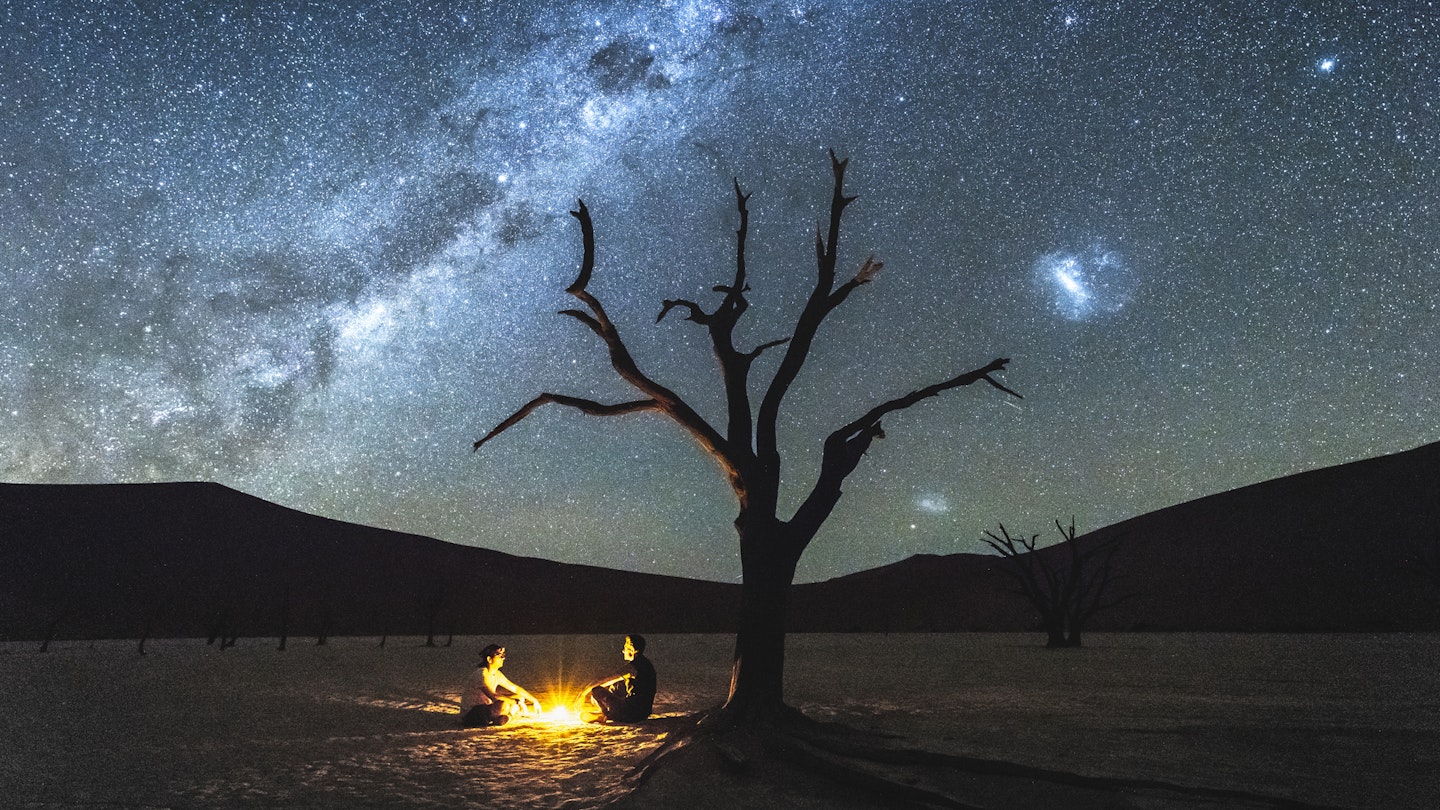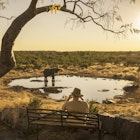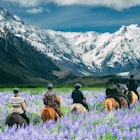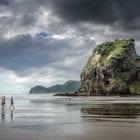Author of Lonely Planet's Dark Skies guidebook Valerie Stimac shares her favorite places for seeing the stars in all their glory.
Standing in the starlight under the swath of the Milky Way, the pristine night sky is one of the most incredible wonders many of us have not seen – and which is under threat due to the constant march of human progress and resultant light pollution. Whether you’ve seen the night sky and appreciate its wonder, or have never seen neighboring planets or our galaxy, stargazing is one of the best ways to travel right now.
From April 15 to 22, the world will celebrate International Dark Sky Week, an event organized by the International Dark-Sky Association to promote the preservation of dark skies around the world.
If you're keen on celebrating dark skies at any point of the year, you'll likely be wondering where are the best places to go. It’s admittedly hard to narrow down the list — and it’s a question I often receive when asked about those destinations that merit an astrotourism trip in their own right. Below you’ll discover five of my favorite dark sky destinations around the world. There are countless others of similar quality and experience, but this list can serve as inspiration to spark your own research and stargazing trip.
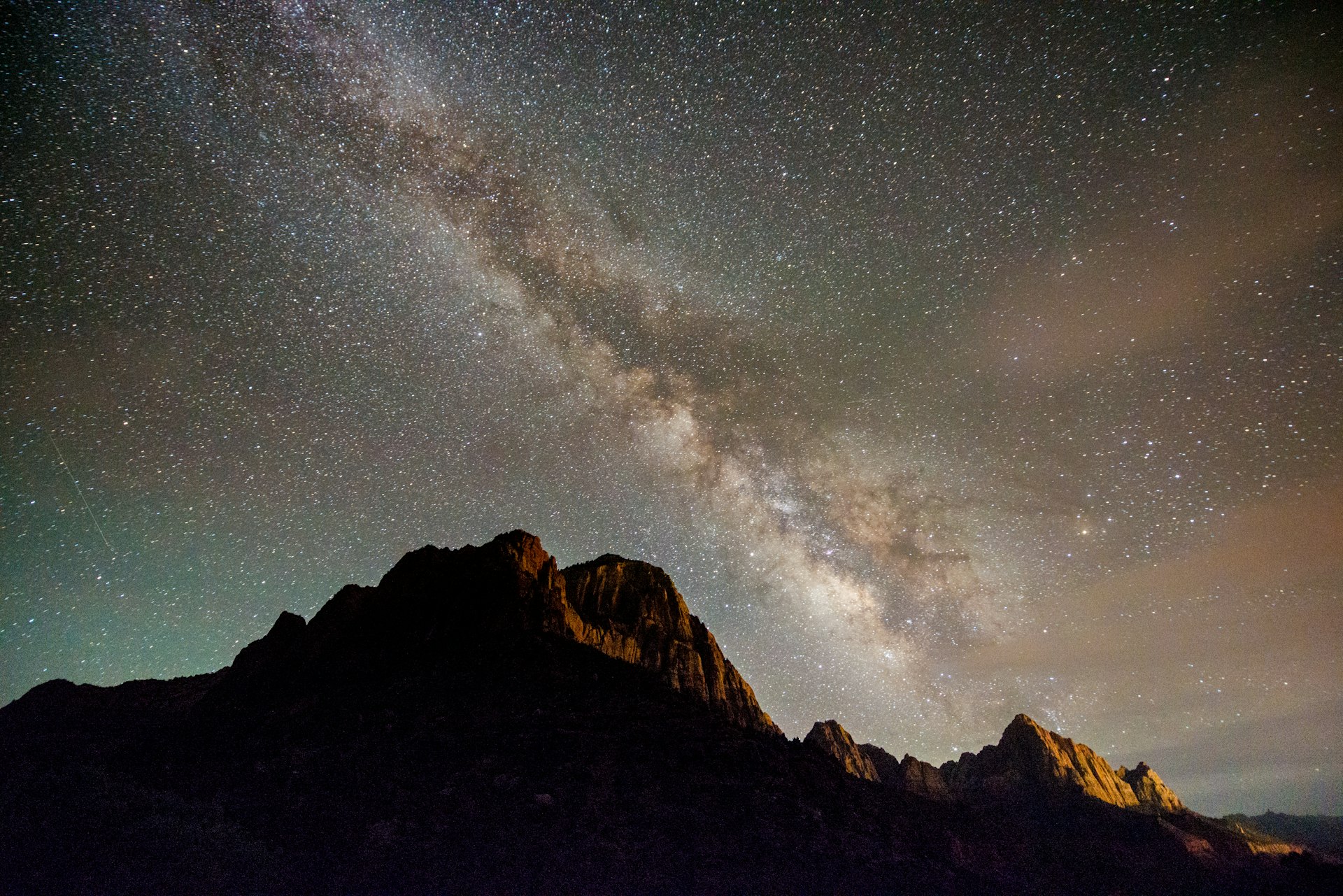
Utah & Arizona, Southwestern USA
If there’s one region in the world that comes to mind for the greatest density of incredible dark sky locations, it has to be Southern Utah and Arizona in the American Southwest. In fact, these two states continue to compete for which one has more IDA-certified dark sky locations. (At the most recent count, Utah has the highest concentration of anywhere in the world.)
Within this vast area, there are several great places to visit for stargazing. For inspiration, one could plan a trip to visit all five of Utah’s National Parks – Utah’s “Mighty 5” – which are all recognized dark sky parks. Or to Arizona’s Grand Canyon National Park and neighboring Grand Canyon-Parashant National Monument, where the gigantic geologic formations rival the stars in their expansiveness.
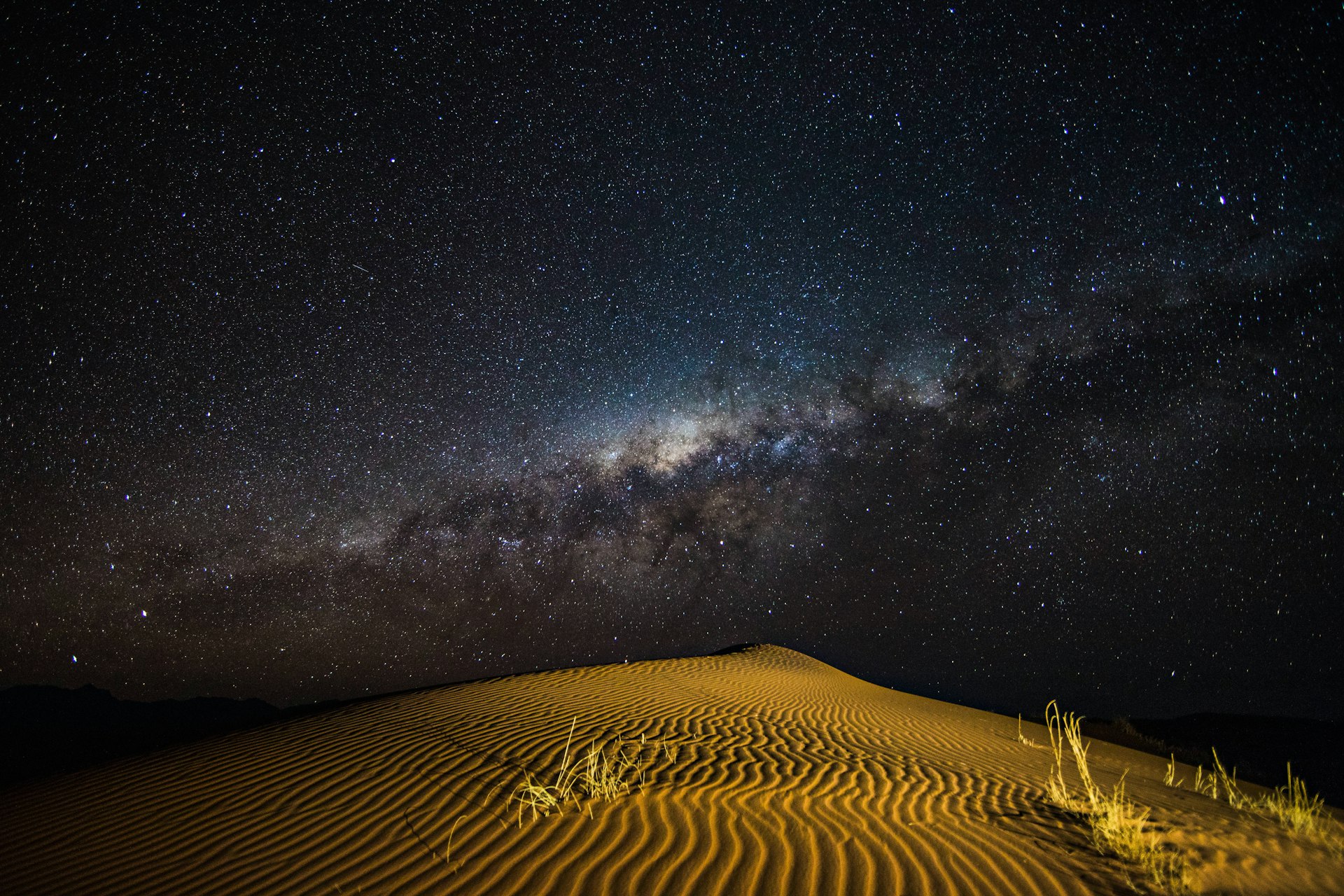
NamibRand Nature Reserve, Namibia
Some of the world’s best places to see the stars are far from the crowds — and their associated light pollution. Life is harsh in the world’s desert environments, and this reduces human development and light pollution. One such place is the NamibRand Nature Reserve in Namibia.
NamibRand Nature Reserve was established in 1984 by J.A. Brückner, a successful businessman who began acquiring farmland on the Namib-Naukluft National Park. Working with other farm owners, he successfully petitioned that the land be turned into a nature reserve. Today, over 215,000 hectares of Namibian desert and savannah are protected in one of the region’s largest private reserves.
In 2012, NamibRand Nature Reserve was recognized and certified as a Dark Sky Reserve; within the reserve, all tourism and business construction is required to comply with low-pollution lighting to help ensure the skies above NamibRand remain dark and species aren’t affected by light pollution.
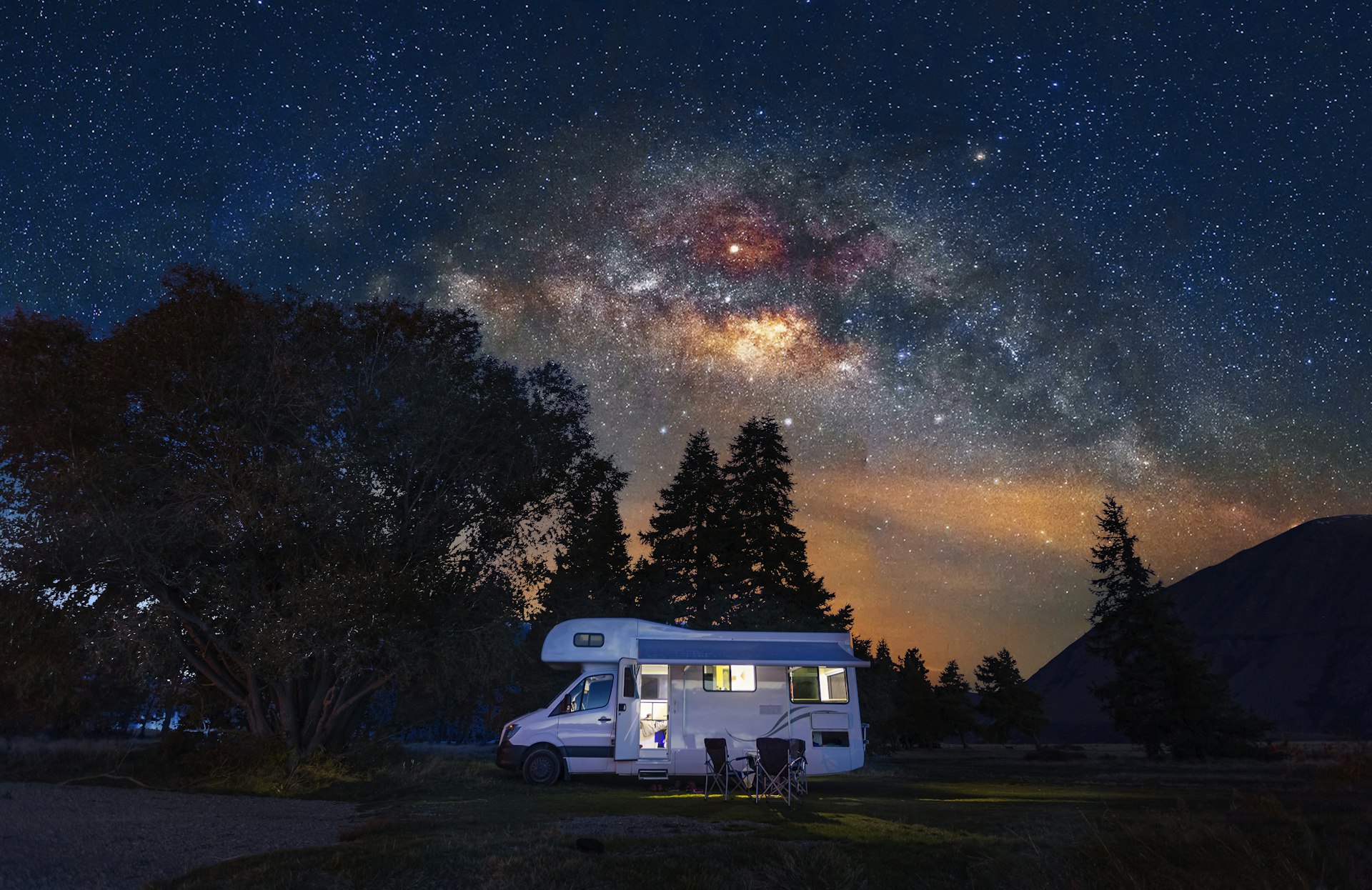
Aoraki Mackenzie Dark Sky Reserve, New Zealand
In the early days of human history, the night sky was a central character in cultural lore and belief systems. Before artificial light and electrical power, the stars were the primary show available to everyone each night, and the stories about stars, constellations and other astronomical phenomena seem almost as numerous as the stars themselves. This holds especially true for the Māori of New Zealand, who not only had a complex lore about the night sky, but used the stars for navigation around New Zealand’s islands.
Thanks to this origin, New Zealand has long been a haven for astronomers and increasingly for astrotourists. Aoraki Mackenzie Dark Sky Reserve, located in the heart of New Zealand’s South Island, is one of the best places in the country to view the night sky. Comprised of Aoraki/Mt Cook National Park Visitor Centre and the Mackenzie Basin, the Dark Sky Reserve was certified in 2012 to continue protecting the dark skies in the area.
Stargazing enthusiasts should plan a visit to Mt. John Observatory, which offers night sky tours and observation through one of the facilities' many telescopes. Tours must be booked in advance through the exclusive tour operator Earth & Sky and originate from the nearby town of Tekapo.
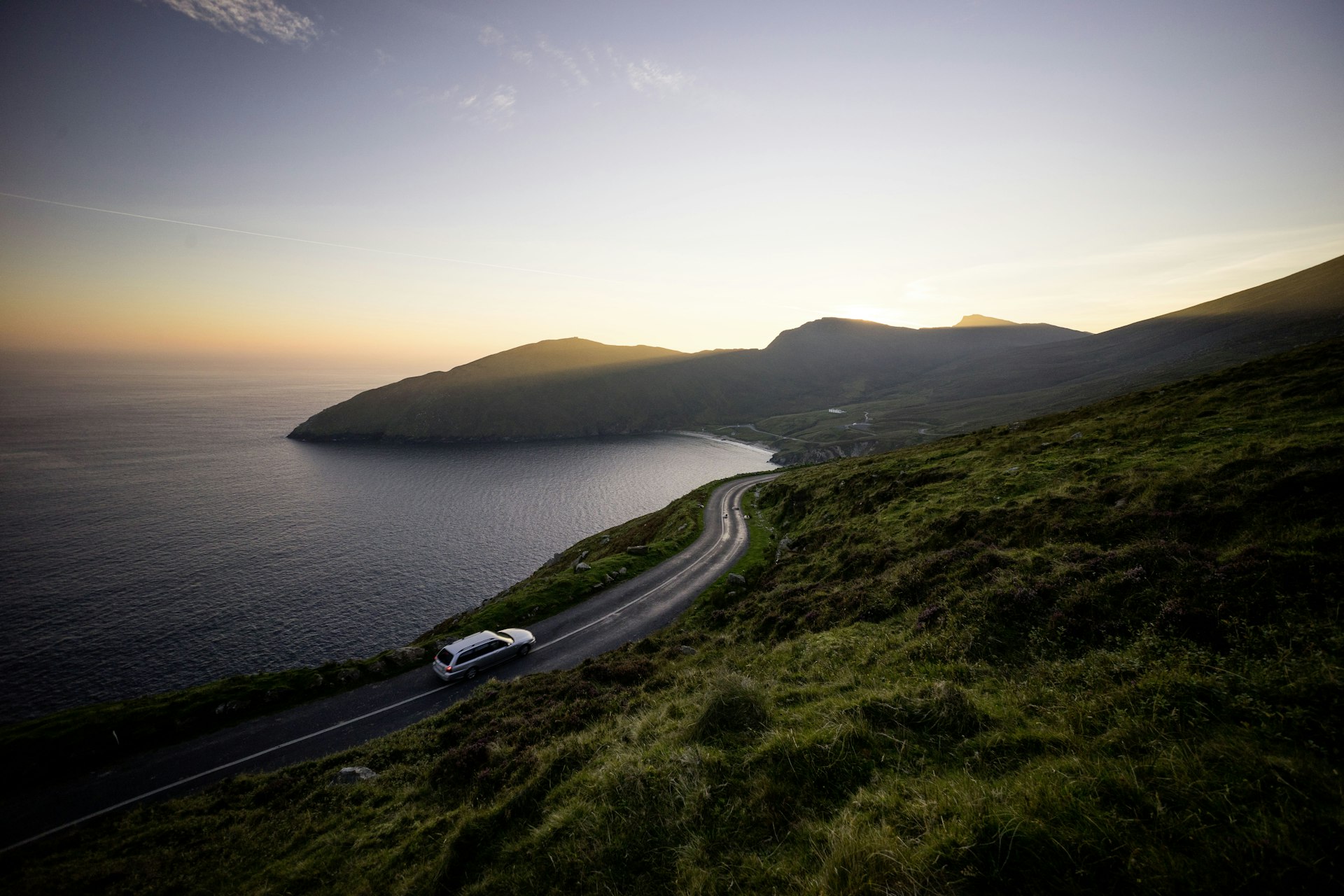
The Wild Atlantic Way, Ireland
Most visitors road trip Ireland’s western Wild Atlantic Way — a tourism route designated in 2014 to encourage visitors to explore beyond hotspots like Dublin and Cork. But the route is also fast becoming a great region for stargazing, thanks to the efforts of local communities along the Way who’ve worked to achieve dark sky designation.
County Kerry Dark Sky Reserve, located on the Kerry peninsula in southwest Ireland, received their designation in 2014. The area is well protected from light pollution thanks to the Kerry mountains, and visitors can gaze out over the Atlantic Ocean at the vast expanse of sea and stars. Similarly, Ballycroy National Park and Wild Nephin Wilderness offers visitors incredible dark sky quality further up the western Irish coast in County Mayo. I was fortunate to visit Ballycroy National Park and Wild Nephin Wilderness (also sometimes called the Mayo Dark Sky Park) in late 2019 and it was one of the darkest skies I’ve ever witnessed.
If planning a trip, keep in mind that Ireland does have wet months where overcast skies are more likely to interfere with your stargazing prospects.
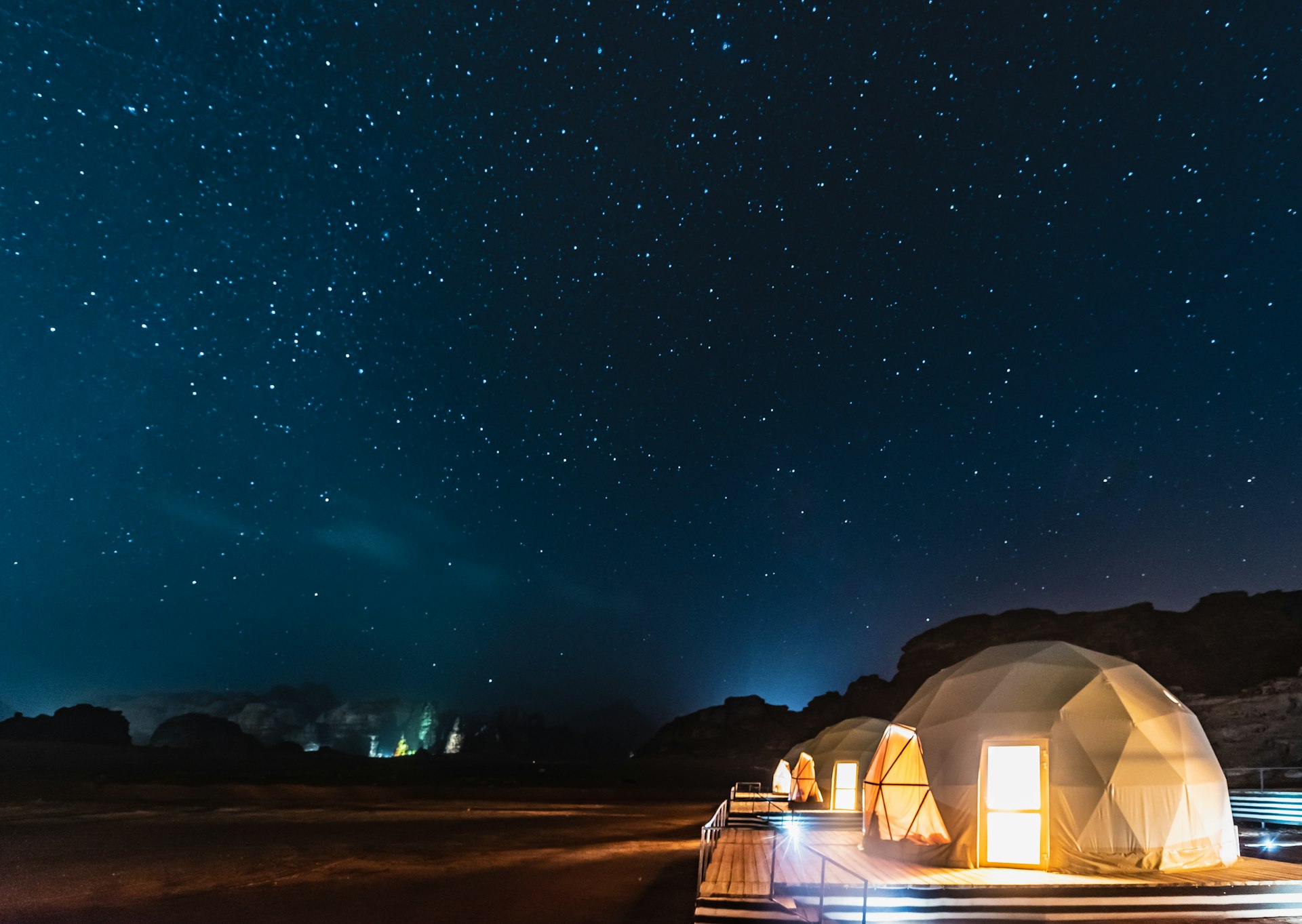
Wadi Rum, Jordan
I’ll end by sharing one of my personal favorites, based on my experience traveling to Jordan several years ago. During my trip, I saw many of the country’s highlights: the Roman ruins of Jerash, the vast expanse of the Dead Sea, and the Rose City of Petra. I also spent one night at a camp in Wadi Rum, the desert region in southern Jordan.
Wadi Rum is also sometimes called the “Valley of the Moon,” though you’re more likely to compare it to Mars if you visit. Made famous for its otherworldly landscapes in movies like Prometheus, Star Wars: Rogue One and The Martian, Wadi Rum’s towering red rock formations are fascinating to explore by day — and offer protection from any distant light pollution once the sun sets.
Stargazing in Wadi Rum is a breathtaking experience, and like NamibRand Nature Reserve and Aoraki Mackenzie Dark Sky Reserve, reminds us how our ancestors experienced the night sky for millennia before light pollution began to encroach on this wondrous natural resource.

